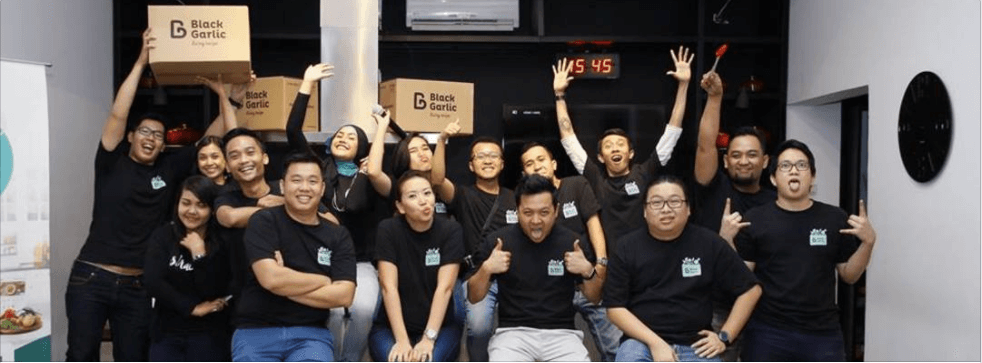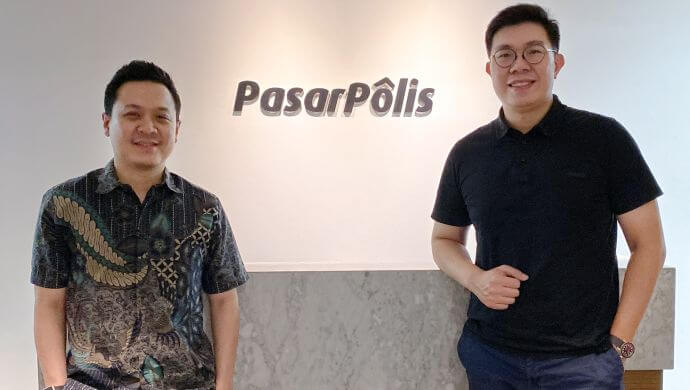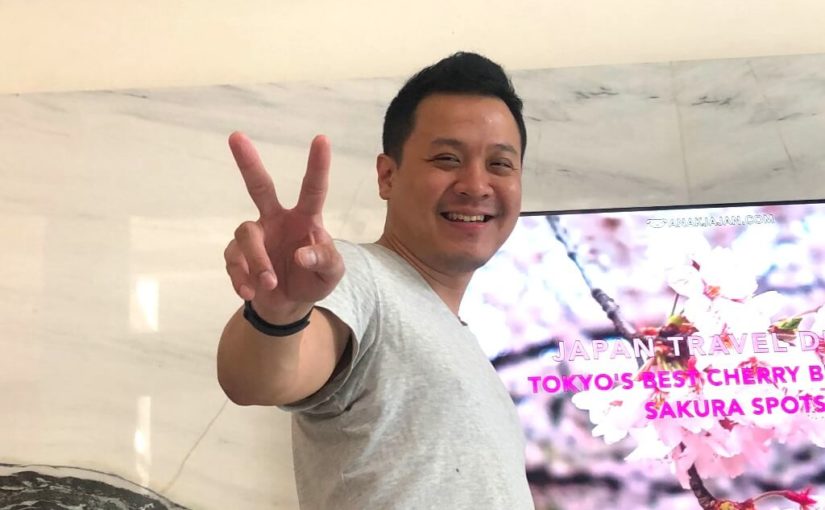After experiencing ups and downs in his career, Michael Saputra, who was the founder of food delivery service startup Klik-Eat and fast food startup Black Garlic, is now COO at PasarPolis.
With extensive experience working in the Indonesian startup since 2012, Michael is currently reluctant to (re)build a new startup and prefers to work at an established startup such as PasarPolis.
He shared stories of success and failure during his time in the industry.
Corporate working is not enough

In early days of his return from studies in the United States, he had worked in the corporate ecosystem. The atmosphere and the existing routine were not quite match with Michael’s passion. Along with his friend, Willy Haryanto, and other Co-Founders, he started Klik-Eat in early 2012.
Klik-Eat is a food delivery service to provide a solution for those who want to avoid traffic, but still available to enjoy the delicious food from their favorite restaurants.
“My first experience when I started building Klik-Eat was how the company could scale-up. It’s still very limited in resources and the ecosystem we had before, but we were able to run a business,” Michael said.
In addition to its core food delivery business, Klik-Eat has expanded by releasing the online catering service Papa Bento. Klik-Eat had received an award by representing Indonesia in the 2012 Echelon. Klik-Eat covers delivery in the Jakarta, Tangerang, and Bandung areas.
The success of Kik-Eat attracted a Japanese company. In 2014, the largest food delivery service in Japan, Yume no Machi Souzou Iinkai (currently referred to as Yume no Machi) increased its shareholding in Klik-Eat delivery service from 19% to a majority (above 50%).
Klik-Eat has rebranded to Foodspot and directly owned by the Japan team. Michael Saputra and Willy Haryanto, the two surviving co-founders, left the company and founded a new startup called Black Garlic.
Similar to Klik-Eat, Black Garlic offers ready-to-eat products and ingredients directly delivered by its internal team. They work closely with William Wongso Kuliner’s team — with Olivia Wongso as the company’s Chief Product Officer.
The brand-new concept of online catering made it difficult at that time for Black Garlic to develop and be accepted by the community. Eventually, the company had to shut down the service in 2017.
“I have never had any regrets with the Black Garlic shutdown. […] It seems that what we are offering is too early. It might be different if we developed that today, when the situation and conditions [of the food delivery ecosystem] were supportive,” Michael said.
After Black Garlic, Michael joined the car sharing platform with a special automated system for Jakarta residents, Hipcar. The company was founded by Leo Tanady and debuted in 2015 as the first car sharing transportation service in Indonesia. Michael, as the COO considered the Hipcar services have great potential.
“I always have passion in technology. I can see with Hipcar something good could be created with the concept of car rental using other people. At that time I believed in the concept and decided to join Hipcar,” said Michael.
After two years with Hipcar, Michael decided to join Xiaomi Indonesia as THE Head of Operations. He had only been working for 6 months before returned to the startup industry and joined the insurtech startup PasarPolis.
Being an investor is not his passion

With his experience on building two startups, Michael currently has no desire to build a new startup. He devoted his current time to develop PasarPolis. He wants to grow the company and make it profitable.
“I am not the type of person who likes to do side projects. When I am involved in one thing, I will focus 100%. It is my ideal strategy in order to be successful, to focus only on one area,” Michael said.
His current position as PasarPolis’ COO is expected to balance other C-levels in the company. Michael really appreciate the founder and CEO of PasarPolis, Cleosent Randing. He said, it is already difficult to build a startup with a co-founder, especially when you do it independently. It takes a strong motivation and vision to be able to build and survive.
When most serial entrepreneurs have “changed quadrants” to become investors, Michael said that he was not interested in following this step. Positioning himself as a builder, not as a visionary, Michael is more motivated in building a startup into a big company and growing positively. However, he opens up to new technologies and trends, and keeps an eye on what investors are currently paying attention to.
“Being asked if I’m interested in becoming a full time investor, the answer is no. It’s not my passion as an investor, I’m more interested in operations and not really into predicting the next big thing,” Michael said.
He said, the process of establishing a startup in previous time and the current era is very different. Before the today’s startup ecosystem developed, the business focus was to present a platform that could sell products from offline to online. Meanwhile, more startups are now looking to complete niche and specific solutions for the wider community.
What startup founders do today is even more challenging and risky than in 2012.
“From the investor’s point of view, I also see that more investors are coming in, offering large capital to startups. The money and the stake are different from investors in the past,” Michael said.
–
Original article is in Indonesian, translated by Kristin Siagian
